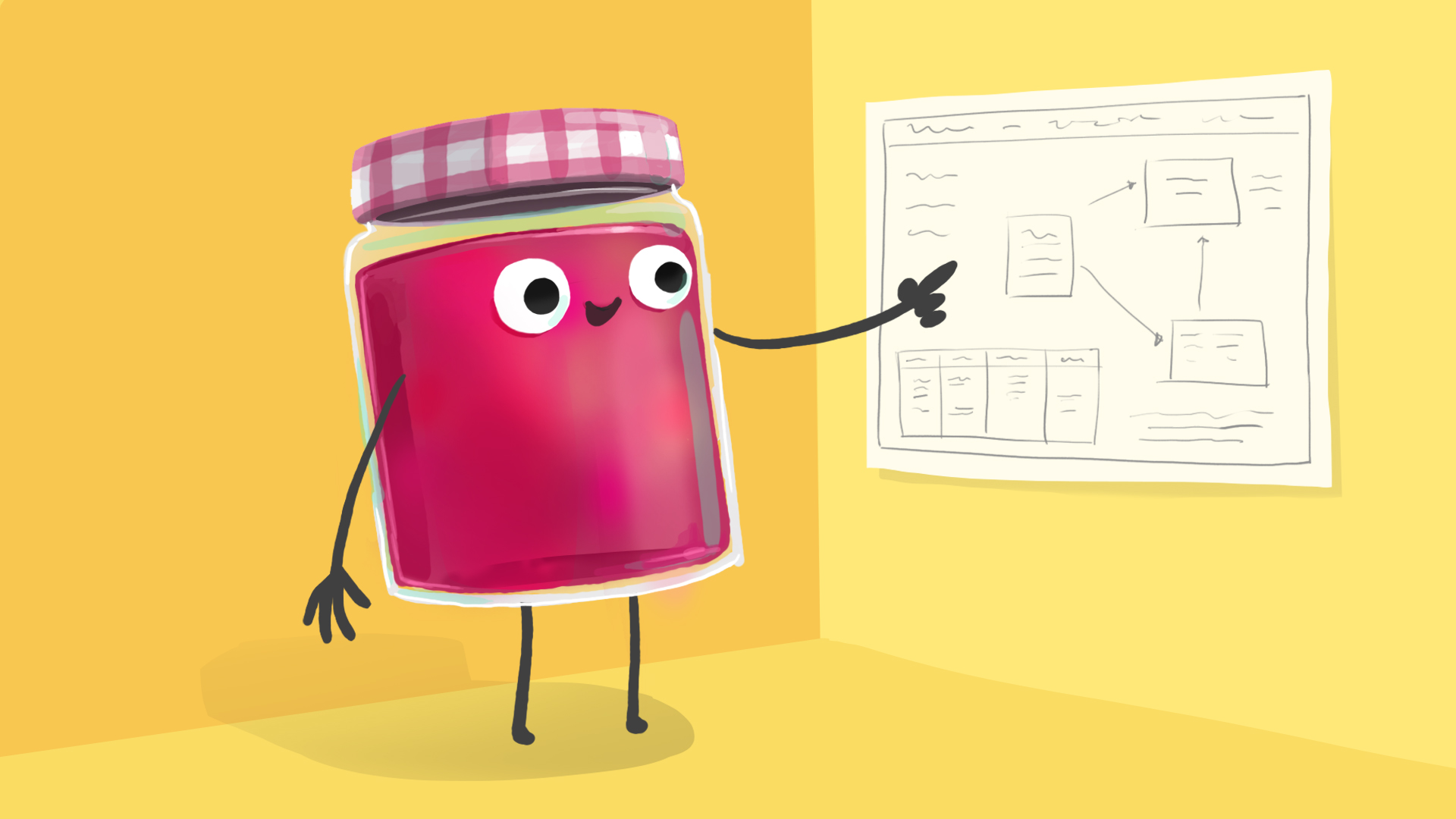
Prepare for your first game jam
Tutorial
Beginner
+10XP
30 mins
(723)
Unity Technologies

The first step towards a successful jam event is preparing everything you need before the jam starts.
By the end of this tutorial, you'll be able to do the following:
- Determine the key details of game jams in order to prepare effectively.
- Set up any software and hardware required for a game jam.
- Identify relevant resources to help you prepare for a game jam.
1. Overview
Doing what you can to prepare in advance makes a substantial difference when you’re in a game jam. In this tutorial, you’ll discover how to make the most of your time before a jam.
By the end of this tutorial, you'll be able to do the following:
- Determine the key details of game jams in order to prepare effectively.
- Set up any software and hardware required for a game jam.
- Identify relevant resources to help you prepare for a game jam.
2. Research your chosen game jam
Research and preparation are critical when you commit to a jam. To set yourself up for success, make sure you're familiar with the rules and conditions of your chosen event and think about what you can do in advance to be as efficient as possible and make the most out of your time.
When you think you’re ready, read through the points below and make sure you’ve considered everything you need to do before the jam begins:
Plan your commitments
Consider how you'll address any personal responsibilities or tasks that would take away time from your game development process during the jam. This might include doing some things in advance (for example, buying groceries or completing chores) or arranging for someone else to take over your responsibilities during the game jam.
Schedule your timetable
Check your calendar to confirm you’re available to participate in your chosen game jam. If you’re joining an in-person jam, check the location and make sure you've considered the time it’ll take to commute there and back. If you also need to take equipment with you, pre-pack your stuff so you don’t forget anything!
3. Set up your software and hardware
During a game jam, you should expect that you’ll need to use software for creation, communication, and sharing. To save time later on, make sure you have your software for each purpose set up in advance.
Game creation tools
There are many options when it comes to the software you’ll be using, however your previous experience and specifications provided by your chosen game jam will help you to decide what will be the most useful. The software that you’ll use could include the following:
- A game engine, like Unity or another alternative.
- Digital content creation (DCC) software, for creating or editing media assets.
- Audio generation or editing software.
You might also use specific hardware like drawing tablets, a range of controllers, mobile devices, or VR hardware. Planning what you might use in advance and checking that it’s set up could save you a lot of time on the day.
Communication and collaboration tools
When you’re in the middle of a jam, particularly an online one, digital communication tools can be very useful. This might include an official game jam Discord server or Slack group, an official forum, or other tools for group work and communication like collaborative documents.
These communication tools can also be used to form groups for remote game jams. Explore the itch.io Discord server to find out more about how participant teams are organized for different jams.

Prepare for your jam
Take a moment to make a list of all the software and hardware you would need for a game jam, and relevant preparation steps. Do you need to set up your digital audio workstation and sound library? Have you installed the latest LTS version of Unity?
4. Develop your Unity skills
If you decide to use the Unity engine to create your game, take some time to consider your confidence level with the platform. Even if you’re comfortable with your skill level, it’s always a good idea to brush up on the basics. Below are some recommended resources to make sure you’re ready for the event:
- Unity Essentials: This short learning pathway is for people who are new to Unity that serves as a first step toward creating confidently in the Unity Editor. In this learning Pathway, you’ll design different rooms of a house, learning the essentials of one key skillset as you complete each room.
- Unity projects: You can use these guided tutorials to develop a range of Unity games and applications, with opportunities to extend your skills and experiment. Search by particular areas of interest and use the filtering tools to help you find a project that suits your needs.
- Create with Code: Work through this course to learn how to develop a range of small games from scratch with C#.
- Brackeys YouTube tutorials: YouTuber Brackeys has partnered with Unity to make a series of beginner and intermediate tutorials, starting with this 10-video introductory series in making a game.
5. Spark your creative process
Game jams almost always feature a theme. Themes are shared with participants either before a game jam starts or at the very beginning of the event. You can approach a theme in a range of different ways: interpreting it literally or creatively, using it to inspire a game narrative, applying it to your game mechanics, or in any other way that you can come up with.
Practice exploring themes
Each game jam theme is different, so it’s important you find one that you like or that you think will challenge you. Use theme generators to brainstorm quick, simple game ideas. This should be a speedy exercise to help you practice your ideation skills for when a theme for your game jam has been announced.
Here are some theme generators to practice your ideation skills with:
- BAFTA Game Idea Generator: This generator by the British Academy of Film and Television Arts provides you with a randomly selected environment, goal, genre, rule, and wildcard to implement into your game.
- Christiaan Janssen’s Theme Generator: This generator by Christiaan Janssen collects over 2,000 themes from Ludum Dare and the monthly Berlin Mini game jam, and presents one to you at random.
- Firith Game Idea Generator: Created by Firith, an indie game studio that focuses on family experiences to reconnect players with childhood nostalgia, this generator gives you a genre, theme, and mechanic to build your game around.
- Ludum Dare: A great source to enter game jams and explore previously made games designed for past themes.
Mood and aesthetic planning
It can also be useful to practice developing visual designs and moods for different themes. Mood boards are a great way to do this, and can be a lot of fun to prepare. Choose one of your theme generator ideas and create a mood board that you could use to inspire the design of that game.
Explore a design document
A clear plan before you start can be really helpful when you’re working on a game jam project. Game Design Documents are a useful way to organize key information about your project and record decisions for future reference. Explore this example Game Jam Design Document template with an online theme generator to map out your game design.
6. What makes a great game jam project?
Everyone has a different criteria to what makes a game successful. To develop your sense of a successful game you need to do some research. Take a moment to review past jam entries and think about what makes each game successful; what do you like or dislike? How does the limit of scope impact the game design? What stands out? What are the game mechanics?
When you enter a game jam, the main thing you need to focus on is creating your game within the time limit whilst working within the constraints. Focus on developing the key features and mechanics of a game before getting into the smaller details. If you want to go above and beyond, try to create some form of marketing material.
Take some time to explore some success stories of previous game jams. It might also be worth looking into some game jam reviews to get an idea of the thought process behind making a game and what defines a great one. Go through the list below to find out what makes a great game jam game:
- Unity’s Twitch: This live stream is run by professionals in the industry who review game jam entries. These professionals go through what some of the best qualities of a game are and what makes some entries stand out from others. .
- Itch.io’s Devlogs About Game Design page: Developer logs are updates made by game developers about their work and progress. The page is a great resource that you can use to learn more about game mechanics, design, and concepts.
- Itch.io’s community page: A perfect space for asking about any advice, tips and tricks on participating in a game jam.
- Global Game Jam’s Press Kit: This page references what the Global Game Jam organizers believe to be some of the most notable games from past entries. Review some of these entries and consider what makes them so good.
7. Next steps
Well done! You’ve explored practical and creative preparation that you can complete in advance of a game jam. It’s now time to finish your journey and complete your basic game jam knowledge: advice and tips for participating in a game jam during the event.